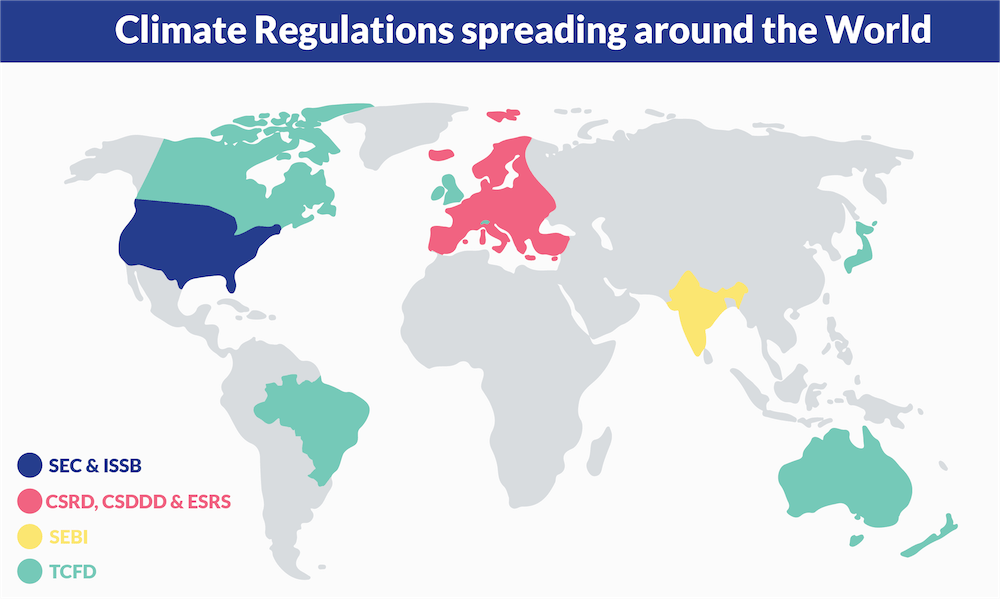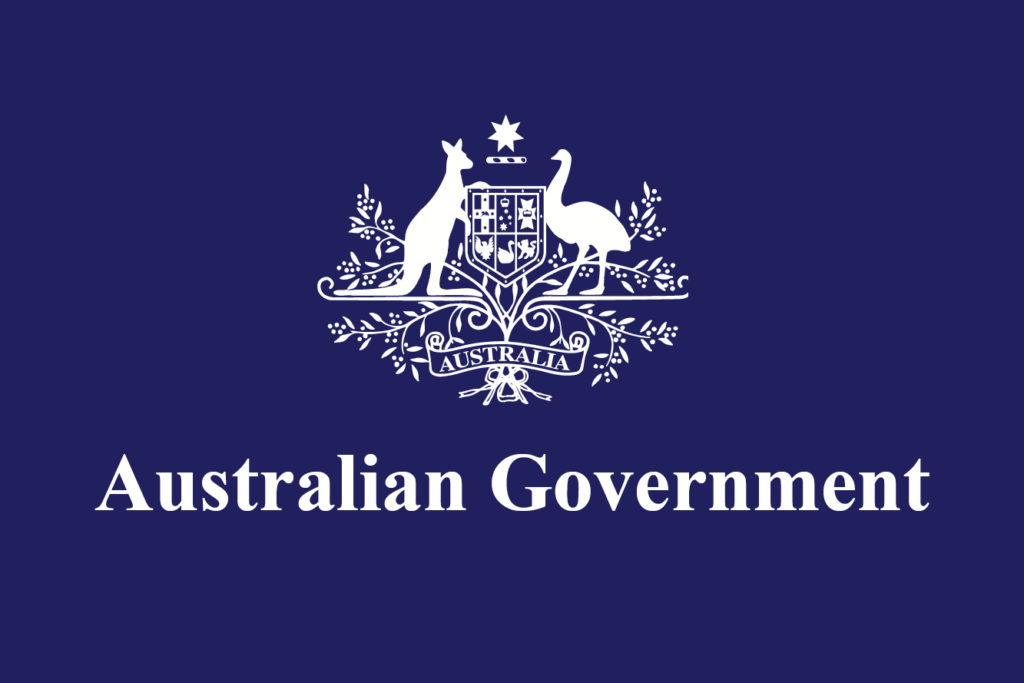Your CLIMATE News: best practices to decarbonize, exclusive CHOICE events and insights into our CLIMATE team!
Your Cheat Sheet: Climate Regulations to be aware
Your Quick Guide through recent Climate Regulation Updates
We all experience it this summer: Climate change poses significant threats to the global economy, to humans and the planet. Time to act, especially also in the financial world. As a consequence, regulators worldwide are addressing climate-related risks. In the last weeks and months, several crucial developments in that area took place across the globe! Let’s delve into what happened in terms of climate regulations in America, Europe, International – and what’s coming up soon.
Quick insight summary: As climate management and disclosure becomes more standardized and mandatory, companies must ensure high-quality data by implementing strong data governance, strategies and control mechanism to maintain audit-ready information throughout the value creation process.

United States of America

The upcoming Securities and Exchange Commission (SEC) climate disclosure rule in the US requires large companies to disclose their carbon footprints alongside financial statements. The SEC’s proposal is aligned with existing recommendations from the Task Force on Climate-related Financial Disclosures (TCFD)and will require organizations to disclose certain climate-related information including greenhouse gas (GHG) emissions, Scopes 1, 2 and 3 and disclosure of climate-related risk, impacts, targets and goals.

The US Commodity Futures Trading Commission announced its second voluntary carbon markets meeting. It aims to discuss private sector efforts in high-quality carbon credits, current market trends, public sector initiatives, and how CFTC can facilitate markets for high-quality carbon credit derivatives.

The International Sustainability Standards Board (ISSB) will assume the role of monitoring companies’ climate-related disclosures. This task was previously handled by the FSB Task Force on Climate-related Financial Disclosures (TCFD). This development comes after the ISSB published global standards for sustainability and climate reporting, which incorporated the TCFD’s recommendations. The move is seen as an attempt to unify sustainability reporting standards, but some may question whether it could pose a threat to independence given the ISSB’s expanded responsibilities. Nonetheless, the decision recognizes the ISSB’s commitment to building upon the TCFD’s legacy and providing more clarity in the realm of climate-related initiatives.
Europe

The European Commission suggests to ease raising Climate and ESG disclosure rules for companies to reduce regulatory burdens. It published the final version of the European Sustainability Reporting Standards (ESRS) on July 31. The climate regulation shifts initially mandatory indicators, including greenhouse gas emissions disclosures, into the scope of materiality assessments, making them reportable if relevant to a company.
But: “If an undertaking concludes that climate change is not a material topic and that therefore it does not report in accordance with that standard, it shall disclose a detailed explanation of the conclusions of its materiality assessment with regard to climate change. This provision is included in recognition of the widespread and systemic effects of climate change on the economy as a whole.”
Under the CSRD, a company needs to implement processes to properly assess and collect climate-relevant information, for their own company and their supply chains. Described as such:
This information must be reported in accordance with European Sustainability Reporting Standards (ESRS). This information shall include information related to short-, medium- and long-term time horizons, as applicable, and it shall contain: The principal actual or potential adverse impacts connected with the undertaking’s own operations and with its value chain.
This obligation is closely related to the due diligence duties to identify adverse impacts, as introduced by the proposed Directive on Corporate Sustainability Due Diligence Directive (CSDDD). The proposed CSDD Directive will thus lead to more complete and effective reporting across global value chains. Part of this proposal is the introduction of a link between variable remuneration of directors and the sustainability targets of the company. Directors of companies that fall within the scope of the proposed directive also need to take into account the consequences of their decisions with respect to sustainability matters, climate change and human rights.

European Financial Reporting Advisory Group (EFRAG) introduced sector-specific Sustainability Reporting. EFRAG announced plans to create three advisory panels for sector-specific sustainability reporting rules for the capital markets, and insurance sectors. These panels will provide tailored reporting guidance for financial institutions starting in September, with applications open until July 31.
International

The Australian Government introduced mandatory Climate-Related Financial Disclosure Requirements for businesses and financial institutions. The climate regulations closely align with the ISSB’s climate standards, focusing on governance, strategy, risk management, and metrics and targets. Regulations have been proposed by the nation to start at the beginning of the 2024/2025 financial year.

Monetary Authority of Singapore (MAS) drives the early phase-out of coal-fired power plants. MAS launched a public consultation on incorporating financing for the early phase-out of coal-fired power plants into the Singapore-Asia Taxonomy, which classifies investments supporting a 1.5°C transition pathway.

The International Sustainability Standards Board (ISSB) has released its first set of sustainability and climate-related disclosure rules, IFRS S1 and IFRS S2, based on voluntary reporting frameworks. These standards aim to present sustainability efforts in a robust and comparable manner, facilitating informed capital allocation decisions by investors. It gets international adoption in countries like Canada, the UK, Japan, Singapore, and Nigeria are considering implementing ISSB standards. The International Organization of Securities Commissions (IOSCO) is now also endorsing them, accelerating their global adoption.
These developments show a growing commitment among regulators worldwide to tackle climate-related risks and enhance reporting. Companies should closely follow the rising need for climate management processes and contribute to a more sustainable and resilient future. Stay tuned for further updates on the global climate transformation.